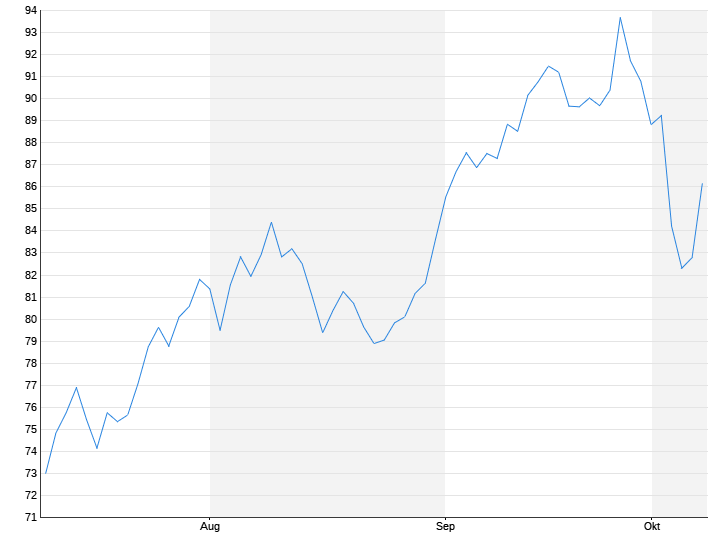“Countries are rethinking energy transition”
OPEC expects increasing oil demand
October 9, 2023, 4:15 p.m
Listen to article
This audio version was artificially generated. More info | Send feedback
The largest oil producers want to raise doubts about the energy transition in many countries. They do predict a higher share of renewables in total production by 2045. But in their opinion, things won’t work without oil in the foreseeable future. Rather, they expect demand to increase over the next two decades.
The Organization of the Petroleum Exporting Countries (OPEC) expects global demand for oil to continue increasing until the middle of the century. Governments and political parties are currently rethinking their strategies for a sustainable energy transition, argued OPEC Secretary General Haitham Al Ghais. Because of the costs and challenges associated with sustainable energy, there is resistance to the view that we should turn our backs on fossil fuels. “Calls for a stop to investment in new oil projects are wrong and could lead to chaos in the energy sector and the economy,” warned the head of Vienna-based OPEC.
Like from the OPEC annual report Based on long-term trends in the energy market, the organization sees global daily oil demand at 116 million barrels in 2045. The forecast for 2025 was increased to 106.1 (previously: 105.5) million barrels. The association expects necessary investments to amount to 14 trillion US dollars by 2045 – also more than previously assumed. Last year, oil demand was 99.6 million barrels per day. For 2023, OPEC expects global oil demand to be 102 million barrels per day. One barrel is equal to 159 liters.
In an alternative scenario, OPEC plans to accelerate the use of renewable energy, which would significantly reduce oil demand. In another scenario, it expects a slowdown in global efforts to reduce carbon emissions, which could boost economic growth and drive up oil demand.
Forecast for renewable energies raised
OPEC is one of the few organizations that publish oil supply and demand forecasts. It includes many of the world’s largest oil producers – members produce around one in three barrels produced worldwide. The cartel has generally been more optimistic than others about the continued use of oil. In September, the International Energy Agency (IEA) forecast that demand for all three major fossil fuels – oil, coal and natural gas – would peak this decade.
OPEC now stated that investment is needed in all forms of energy, including the vigorous development of renewable energy. She added that significant spending would also be needed on technologies that could curb the release of carbon dioxide from hydrocarbon-based energy production.
The organization expects that petroleum will still account for almost 30 percent of fuel consumption in 2045, only slightly below the 31.2 percent forecast for 2022. Renewable energy – excluding hydropower and biomass – is expected to account for 11.7 percent of global demand by 2045. This is a significant increase compared to the 2.7 percent that OPEC had predicted in 2022.
